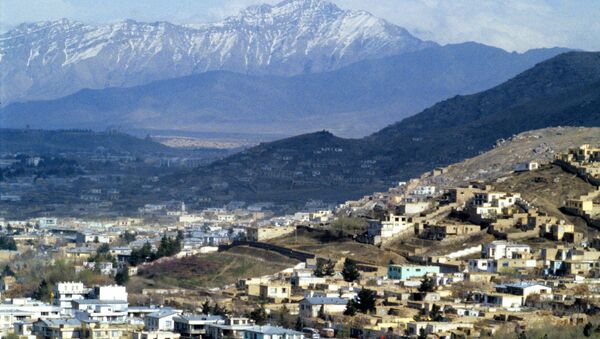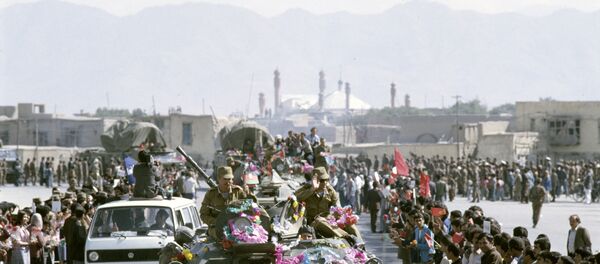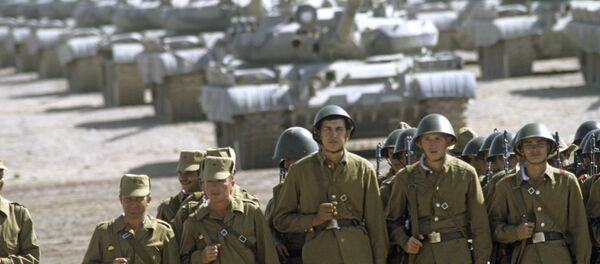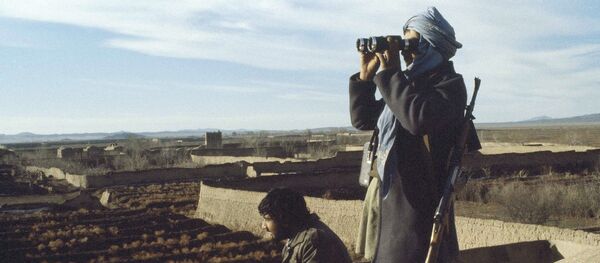Thirty years ago today the last Soviet soldier crossed the river Oxus from Afghanistan back into the Soviet Union. The almost 10-year war against Islamist extremism on the USSR's borders was over. But not the suffering of the Afghan people whose chances for a peaceful life were ruined by the duplicitous policies of the West.
However, as the British government papers reveal, the fate of the Afghan people was the least of their worries.
"Our primary aim has been to get the Russians out", wrote R. N. Peirce, a high ranking British diplomat.
"Next, we want to ensure a speedy and spectacular collapse of the PDPA regime", wrote another high ranking official Percy Craddock.
"What precisely will replace Najib [PDPA leader Najibullah — NG] we cannot be sure. We may well have an unpleasant fundamentalist Government and a country where internecine fighting continues…
But in the end this is the Afghans' affair".
And so the Afghans were abandoned by the West as soon as it achieved its primary goal of scoring one over on Moscow.
Afghanistan was just a Western tool in the Cold War against Moscow.
Let the Afghan War Go On Forever
Talking to British policy makers in April 1988 shortly before the signing of the Geneva accords on the Soviet pullout from Afghanistan and the peace settlement, Bashir Babar, Pakistani Deputy Foreign Secretary could not help but notice:
"…the cynical approach of US conservatives, who would like to see the Soviet Union remain in Afghanistan and suffer more casualties, although this would be at the expense of the Afghan people themselves".
The British conservatives were no less cynical. As early as 1985 Lord Cranborne, Chairman of the Afghanistan Support Committee of British MPs sent a policy paper to Prime Minister Margaret Thatcher, suggesting that:
"The Resistance cannot win the war but can keep it going almost indefinitely given the right kind of military and humanitarian aid inside Afghanistan…
Over a ten or twenty year period the war can become a running sore for the Soviets, attacking their international moral prestige.
The Resistance need Afghan civilians inside Afghanistan (the fish must have water to swim in)".
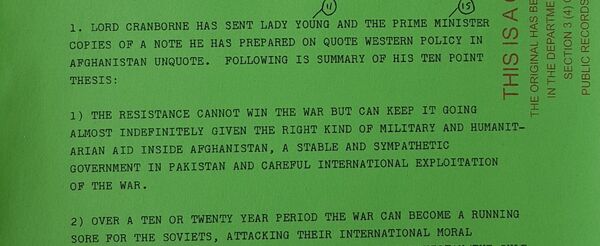
The lives of Afghans did not really matter in this Western policy. The "fish" were forced to "swim" in blood. As an American diplomat in Kabul cynically quipped "the Afghans love to fight, so let them fight". In one respect both were right — thanks to Western policies the war in Afghanistan continued after the Soviet pullout.
Uneasy Symmetry
British officials admitted that Pakistan's role in allowing the US supplies to reach the resistance fighters could mean a violation of the terms of the Geneva accords.
"…it is not clear from the sketchy information given us by the Americans here [in Geneva — NG] whether the US would guarantee the agreement…On the face of it, they seem to be guaranteeing that Pakistan would not violate the agreement while knowing that the Pakistanis intended to do so".
A briefing by US Deputy Assistant Secretary of State Peck did not fully convince them:
"In gentle questioning Peck looked uneasy whenever it was implied there was a contradiction between the obligation of Pakistan to ensure non-interference in Afghanistan across its borders and the right of the US, faced with continued Soviet supply, to provide military assistance to the resistance in Afghanistan".
The US National Security Council confided in the British diplomats that Washington "had in recent weeks been accelerating supplies to the resistance: there might not therefore be a need for significant further supplies from Pakistan in the crucial first weeks after the agreement was signed".
The West Got it All Wrong
The West proceeded from an expectation that the government of Najibullah [Najib in Western parlance — NG] would fall as soon as the last Soviet soldier left Afghanistan.
"The current US assessment did not foresee the PDPA lasting beyond the withdrawal period".
Some CIA analysts predicted that Najibullah would fall even before the Soviet pullout was complete. They were to be sorely disappointed. The Afghan government of Najibullah held out for a full three years after the Soviet pullout and only succumbed to the mujahideen when the new Russian president Boris Yeltsin stopped the supplies to please his new friends in the West. That had a demoralising effect on the Afghan army and triggered defections over to the rebel side.
READ MORE: Afghan Law Professor Explains Why Hague Can't Try Pentagon, CIA for War Crimes
Briefing NATO's North Atlantic Council in April 1988 on the Geneva agreements reached by Washington and Moscow, the US Deputy Assistant Secretary of State Peck was skeptical about the likelihood of a conflict between fundamentalist and moderate groups within the resistance. While divisions were clearly evident in the resistance, he said, they were not clear cut. It was wrong to speak of "fundamentalists" versus "moderates". [Makes one think of recent Western descriptions of the Syrian "opposition"].
"Evolution in Afghanistan would not be logical or orderly, but not would it be chaotic or particularly violent", Peck told his Western counterparts.
But would it really matter to the West since, as Peck told his audience, in strategic terms Afghanistan was relatively unimportant?
No Affection for Peace
"Peace and harmony will not return to Afghanistan until and unless a government is formed which is acceptable to the Afghan people, especially the mujahideen, who represent the genuine aspirations of their people".
Thus wrote Pakistani President General Zia-ul-Haq to British Prime Minister Margaret Thatcher.
"We are glad that Mr Cordovez [UN Special envoy for Afghan settlement — NG] has pledged to initiate efforts to promote a broad-based government in Afghanistan. This would encourage the early return of the 5 million Afghan refugees in Pakistan, Iran and elsewhere, and enable the people of Afghanistan to exercise their right to self-determination".
This message, whether sincere or not, was repeated by Pakistani acting Foreign Minister Noorani during his visit to London on 14-15 April 1988:
"Pakistan still regarded interim government as vital stage on road to peace. Best way forward would be for Cordovez to establish post-Geneva intra-Afghan dialogue".
Noorani praised the Soviet decision to withdraw but said that without progress on an interim government, fighting would continue.
The Pakistanis strongly believed that:
"Cordovez should proceed with his private effort to establish an intra-Afghan dialogue, possibly involving tri-lateral proximity talks between the Resistance, exiles and regime [bold by NG].
Noorani told the British that the international community should "encourage the PDPA and Resistance to compromise".
Noorani claimed that the Soviet acceptance of symmetry over arms supplies [by the US to the Resistance and by the USSR to Kabul respectively — NG] implied that the Soviets were now prepared to regard the Resistance as being on an equal footing with the regime.
The British Foreign Secretary Sir Geoffrey Howe advised Prime Minister Margaret Thatcher to reiterate in her reply to President Zia UK support for a comprehensive political settlement and for a government in Afghanistan that truly represented the Afghan people, including the Resistance. The FCO prepared a policy paper recommending that London should be:
"advocating an interim government as the best means of facilitating a peaceful transfer of power from the regime to a truly representative government".
The turn of phrase "including the Resistance" implied that the FCO saw the Najibullah government in Kabul as a party to this process.
The Americans were of the opinion that, in the words of Deputy US Assistant Secretary of State Peck, Najibullah, no doubt, was a formidable leader and could have played a major role in the future.
However, Thatcher, having paid lip-service to the idea of a broad-based government of national reconciliation in Afghanistan in her reply to President Zia, demanded privately that the FCO refrain from any such support.
She fully agreed with the advice of her private secretary Charles Powell:
"…just as you were right to reject and interim government before, so you would be now. There is no point in our supporting an 'intra-Afghan dialogue'or 'an interim government'…We want the Resistance to win" [bold by NG].
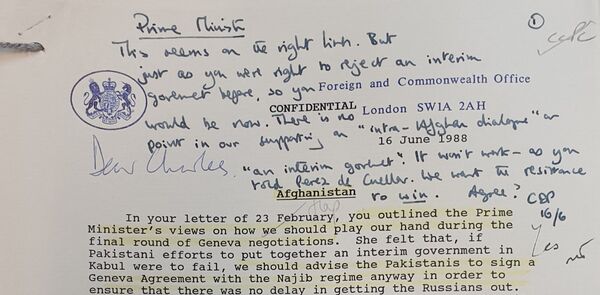
Thatcher duly instructed her Foreign Secretary Geoffrey Howe that support for the United Nations effort to promote an intra-Afghan dialogue should be "dropped from the list of policies/areas of action" of the British government.
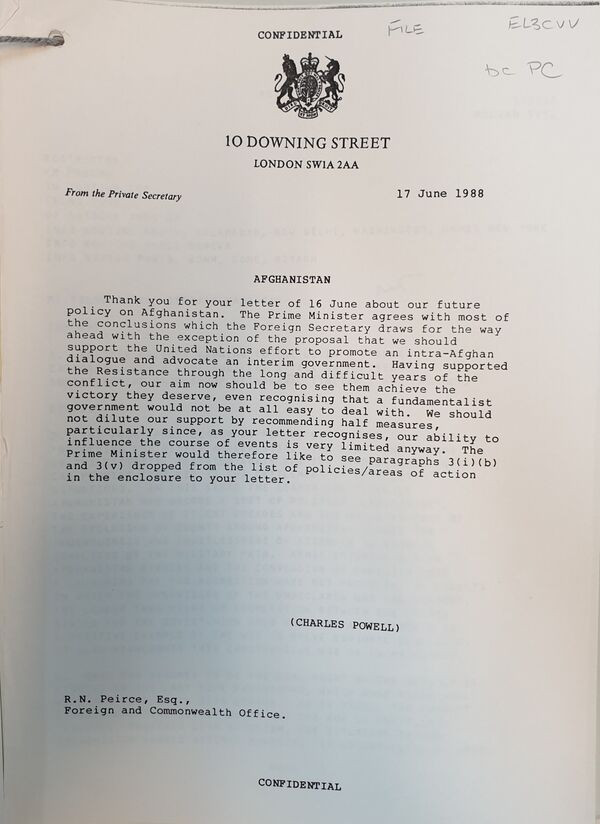
Not that Geoffrey Howe attached "a great deal of importance" to the interim government, FCO's Private Secretary Peirce replied.
"It is simply one way to arrange a peaceful transfer of power, which has been regularly endorsed by the Twelve [Western allies coordinating their policies re Afghanistan — NG].
He [the Foreign Secretary — NG] has no affection for it".
British objective, he continued, should be to shut Najibullah out of the intra-Afghan settlement and deny him any international support. The fighting seems bound to continue, Peirce opined.
"It would plainly be helpful if this could be seen and presented as the result of the intransigence of the regime, not that of the Resistance".
But in reality it was the Resistance who had a serious problem, as acknowledged by Sayyid Ahmed Gailani, leader of the National Islamic Front of Afghanistan.
During a visit to London in October 1988, halfway through the Soviet pullout, Gailani lamented the fact that while events were unfolding rapidly inside Afghanistan, no progress was being made among the opposition parties based across the border in Peshawar. No organisation existed to speak for the Resistance as a whole, and there was a risk, in Gailani's view that certain members of the alliance who lacked popular support in Afghanistan could exploit any chaos that followed the Soviet withdrawal and seize power.
And that's what eventually happened, leading to 9/11 and a never-ending Western war in Afghanistan.
The views and opinions expressed in this article are solely of the contributor and do not necessarily reflect those of Sputnik.
